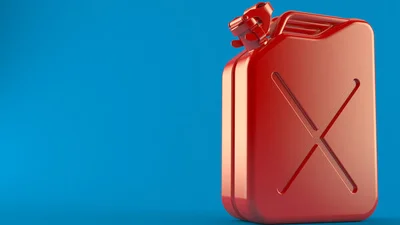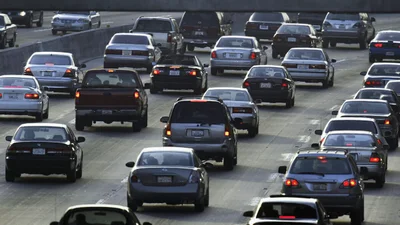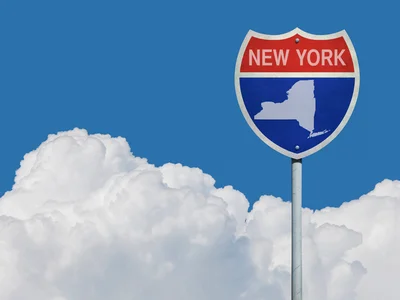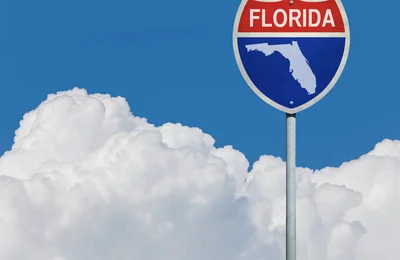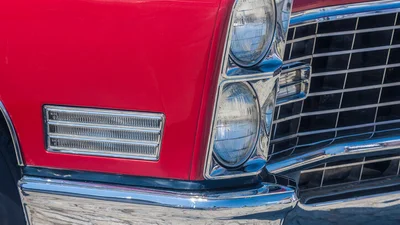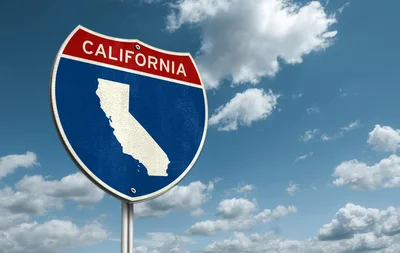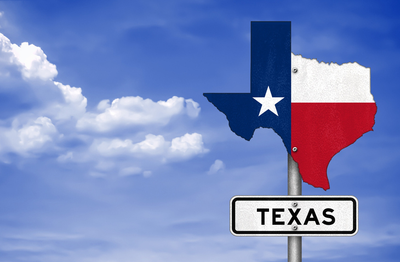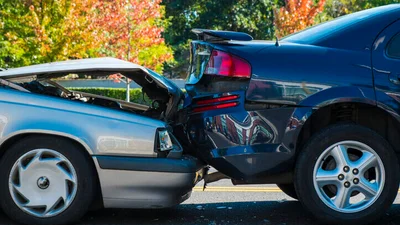Best car insurance companies of November 2023
Updated 12:02 a.m. UTC Nov. 27, 2023
Editorial Note: Blueprint may earn a commission from affiliate partner links featured here on our site. This commission does not influence our editors' opinions or evaluations. Please view our full advertiser disclosure policy.
Looking for the best car insurance companies? American Family, Auto Owners, Nationwide and USAA should top your list. Each receives a 5-star rating in our best car insurance review based on key factors, such as coverages available, options and features, consumer complaints and average rates.
The best car insurance companies of November 2023
- American Family: Best car insurance
- Auto-Owners: Best for car insurance after accident
- Nationwide: Best for collision and comprehensive coverage
- USAA: Best car insurance for military
- Geico: Best for drivers looking for low-cost coverage
- Travelers: Great for customers buying a new vehicle
- Westfield: Best for family discounts
Why trust our car insurance experts
Our team of car insurance experts evaluates hundreds of insurance products and analyzes thousands of data points to help you find the best product for your situation. We use a data-driven methodology to determine each rating. Advertisers do not influence our editorial content. You can read more about our methodology below.
- 780 companies analyzed.
- 7,800 rates reviewed.
- 5 levels of fact-checking.
Top-rated car insurance companies of 2023
What is the best car insurance company?
Based on our analysis, the best auto insurance companies are American Family, Auto-Owners, Nationwide and USAA, each with a 5-star rating. USAA car insurance is only available to members of the military, veterans and their eligible family members.
All of these top-rated car insurance companies also hold a spot in at least one other best car insurance rating. Auto-Owners, Nationwide and USAA, for instance, all place in our ratings of the cheapest car insurance, best car insurance for teens and best car insurance for seniors.
To find the best car insurance for you, shop around and compare car insurance quotes.
Best liability car insurance: Auto-Owners and USAA
The best cheap liability-only car insurance is sold by Auto-Owners and USAA.
Auto-Owners has the cheapest liability-online coverage, with an average rate of $404 a year, though USAA only trails slightly behind with an average rate of $466 a year.
Best liability-only car insurance companies 2023
| Car insurance company | Average annual car insurance cost | Average monthly car insurance cost | Learn more | ||
|---|---|---|---|---|---|
| Auto-Owners | $404 | $34 | Compare Rates | Compare rates offered by participating partners | |
| USAA | $466 | $39 | Compare Rates | Compare rates offered by participating partners | |
| Westfield | $507 | $42 | Compare Rates | Compare rates offered by participating partners | |
| Geico | $510 | $43 | Compare Rates | Compare rates offered by participating partners | |
| Erie | $513 | $43 | Compare Rates | Compare rates offered by participating partners | |
| Travelers | $549 | $46 | Compare Rates | Compare rates offered by participating partners |
Best car insurance for seniors: Auto-Owners, Nationwide and Travelers
Auto-Owners, Nationwide and Travelers are all good car insurance companies for drivers aged 60 or older. Each insurer earns 5 stars in our best car insurance for seniors rating.
Nationwide offers the cheapest rates for senior drivers out of the bunch, with an average rate of $1,397 per year, or $116 per month. If you’re looking for the cheapest car insurance for seniors, you may also want to consider USAA, which has an average rate of $1,551 per month.
Best senior car insurance companies 2023
| Car insurance company | Average annual car insurance rate | Average monthly car insurance rate | LEARN MORE | ||
|---|---|---|---|---|---|
| Auto-Owners | $1,775 | $148 | Compare Rates | Compare rates offered by participating partners | |
| Nationwide | $1,397 | $116 | Compare Rates | Compare rates offered by participating partners | |
| Travelers | $1,586 | $132 | Compare Rates | Compare rates offered by participating partners | |
| American Family | $1,970 | $164 | Compare Rates | Compare rates offered by participating partners | |
| Erie | $1,887 | $157 | Compare Rates | Compare rates offered by participating partners | |
| USAA | $1,551 | $129 | Compare Rates | Compare rates offered by participating partners | |
| Westfield | $2,057 | $171 | Compare Rates | Compare rates offered by participating partners | |
| Progressive | $1,899 | $158 | Compare Rates | Compare rates offered by participating partners |
*Car insurance rates reflect the average of rates for men and women between ages 60 and 80.
Best car insurance for teens: American Family
The best car insurance company for teens is American Family.
American Family policyholders who add a teen driver to their car insurance policy pay an average of $1,556 per year.
| Car insurance company | Annual car insurance rate | Monthly car insurance rate | LEARN MORE | ||
|---|---|---|---|---|---|
| USAA | $1,293 | $108 | Compare Rates | Compare rates offered by participating partners | |
| Erie | $1,357 | $113 | Compare Rates | Compare rates offered by participating partners | |
| Geico | $1,495 | $125 | Compare Rates | Compare rates offered by participating partners | |
| American Family | $1,556 | $130 | Compare Rates | Compare rates offered by participating partners | |
| Nationwide | $1,607 | $134 | Compare Rates | Compare rates offered by participating partners | |
| Auto-Owners | $1,882 | $157 | Compare Rates | Compare rates offered by participating partners |
Did you know? Teen drivers are 4 times more likely to get in an accident than older drivers.
Best car insurance for drivers with a DUI: USAA and Progressive
A DUI will raise your rates, but if you’re shopping for the best cheap car insurance after a DUI, get quotes from USAA and Progressive. USAA has the cheapest average rates after a DUI ($2,751), but Progressive isn’t far behind ($2,776).
| Car insurance company | Annual car insurance rate | Monthly car insurance rate | LEARN MORE | ||
|---|---|---|---|---|---|
| USAA | $2,751 | $229 | Compare Rates | Compare rates offered by participating partners | |
| Progressive | $2,776 | $231 | Compare Rates | Compare rates offered by participating partners | |
| American Family | $2,983 | $249 | Compare Rates | Compare rates offered by participating partners | |
| State Farm | $3,235 | $270 | Compare Rates | Compare rates offered by participating partners |
Best for lowest car insurance rates: USAA and Auto-Owners
If rates are the number one factor in your search for auto insurance, consider USAA and Auto-Owners. At $1,412 a year, USAA has the cheapest overall average rates for car insurance among the insurers we analyzed.
If you’re not eligible for USAA coverage, get a quote from Auto-Owners, which has the second lowest rates among insurers in our best cheap car insurance rating.
| Car insurance company | Annual car insurance rate | Monthly car insurance rate | LEARN MORE | ||
|---|---|---|---|---|---|
| USAA | $1,412 | $118 | Compare Rates | Compare rates offered by participating partners | |
| Auto-Owners | $1,628 | $136 | Compare Rates | Compare rates offered by participating partners | |
| Geico | $1,716 | $143 | Compare Rates | Compare rates offered by participating partners | |
| Westfield | $1,759 | $147 | Compare Rates | Compare rates offered by participating partners | |
| Travelers | $1,852 | $154 | Compare Rates | Compare rates offered by participating partners | |
| Nationwide | $2,041 | $170 | Compare Rates | Compare rates offered by participating partners |
Best home and auto insurance bundle: American Family, State Farm and USAA
American Family, State Farm and USAA are all great for bundling your auto and home insurance policies.
Of the three, State Farm insurance offers the biggest discount for a home and auto bundle, with up to 18% off on your premiums. Nationwide and Auto-Owners also make our rating of the best home and auto bundles.
| Car insurance company | Average bundling discount | LEARN MORE | ||
|---|---|---|---|---|
| American Family | 18% | Compare Rates | Compare rates offered by participating partners | |
| State Farm | 23% | Compare Rates | Compare rates offered by participating partners | |
| USAA | 6% | Compare Rates | Compare rates offered by participating partners | |
| Nationwide | 15% | Compare Rates | Compare rates offered by participating partners | |
| Progressive | 7% | Compare Rates | Compare rates offered by participating partners | |
| Auto-Owners | 10% | Compare Rates | Compare rates offered by participating partners |
Best car insurance companies for claims
Among the insurers that made our rating of the best auto insurance companies, the following received above average scores on the most recent J.D. Power U.S. Auto Claims Satisfaction Study.
The J.D. Power U.S. Auto Claims Satisfaction Study analyzes multiple aspects of the claims processing experience, including claims servicing, the estimation process, rental experience, repair process and claims settlement. The score is based on a 1,000-point scale, with 873 being the industry average.
Best car insurance for low complaints: American Family
The car insurance company with the lowest level of consumer complaints is American Family, according to a review of data from the National Association of Insurance Commissioners (NAIC).
Compare the best car insurance of 2023
| Car insurance company | Our rating | Average annual car insurance cost | Complaint level | LEARN MORE | ||
|---|---|---|---|---|---|---|
| American Family | 5.0 stars | $2,176 | Very low | Compare Rates | Compare rates offered by participating partners | |
| Auto-Owners | 5.0 stars | $1,628 | Low | Compare Rates | Compare rates offered by participating partners | |
| Nationwide | 5.0 stars | $2,041 | Very low | Compare Rates | Compare rates offered by participating partners | |
| USAA | 5.0 stars | $1,412 | Average | Compare Rates | Compare rates offered by participating partners | |
| Geico | 4.5 stars | $1,716 | Average | Compare Rates | Compare rates offered by participating partners | |
| Travelers | 4.5 stars | $1,852 | Very low | Compare Rates | Compare rates offered by participating partners | |
| Westfield | 4.5 stars | $1,759 | Very low | Compare Rates | Compare rates offered by participating partners | |
| Allstate | 3.5 stars | $3,000 | Low | Compare Rates | Compare rates offered by participating partners | |
| Farmers | 3.5 stars | $2,381 | Low | Compare Rates | Compare rates offered by participating partners | |
| Progressive | 3.5 stars | $2,157 | Low | Compare Rates | Compare rates offered by participating partners | |
| State Farm | 3.5 stars | $1,959 | Low | Compare Rates | Compare rates offered by participating partners | |
| Erie | 3.0 stars | $2,144 | Low | Compare Rates | Compare rates offered by participating partners | |
| Safe Auto | 1.0 stars | $2,647 | Very high | Compare Rates | Compare rates offered by participating partners |
Methodology
Our insurance experts evaluated top car insurance companies in the nation to determine which offer the best-rated auto insurance based on average rates, coverage features, collision claims process and consumer complaints.
Each car insurance company was eligible for up to 100 points, based on its performance in the following key categories:
Cost: 50 points. We analyzed rates from Quadrant Information Services based on seven driver profiles for a policy with 100/300/100 in liability coverage, uninsured motorist coverage and comprehensive and collision coverage. We awarded up to 50 points based on insurers’ average rates for:
- Drivers in various age groups.
- Drivers with bad credit.
- Good drivers.
- Drivers with infractions, such as speeding tickets, an accident or a DUI on their record.
Consumer complaints: 30 points. We collected complaint data from the National Association of Insurance Commissioners, which shows the volume of car insurance consumer complaints against each company. When a consumer lodges a complaint to their state’s department of insurance — often about an insurance company’s claims process, delays, denials or settlements — these complaints are logged and tracked.
Car insurance coverage features: 15 points. Car insurance policy features can help make coverage more affordable both before and after an accident or covered incident. We evaluated car insurance policies offered by each insurer and awarded points to insurers that offered these valuable benefits:
- Accident forgiveness (5 points).
- New car replacement (5 points).
- Vanishing deductible (5 points).
SR-22 availability: 5 points. After a major traffic violation, some drivers must provide proof that they have the type and amount of coverage required by their state. Proof of coverage is obtained through an SR-22 filing, but not all insurers offer SR-22. Auto insurance companies that offer SR-22s were awarded points.
Why some companies didn’t make the cut
Insurance companies with rates significantly higher than the national average, or with a substantial number of customer complaints, did not make our list of the best car insurance companies.
Companies that lack car insurance policy options, such as new car replacement or accident forgiveness, may also have been excluded, depending on how well they scored in other categories.
Car Insurance rates by state
Car insurance costs vary by state and even ZIP code. Here’s the average cost of car insurance for a good driver in every state.
*Minimum coverage rates are based on the minimum amount of auto insurance required in each state. Full coverage rates are based on liability coverage of 100/300/100 ($100,000 in bodily injury liability per person, $300,000 per accident and $100,000 in property damage liability), uninsured motorist coverage and collision and comprehensive insurance with a $500 deductible. Source: Quadrant Information Services.
How much does car insurance cost?
The average annual car insurance rate for good drivers is $2,067, or about $172 per month according to our analysis.
*USAA car insurance is only available to members of the military, veterans and their families.
Average annual car insurance costs based on vehicle type
Safety is often top of mind when it comes to choosing a vehicle, and the vehicle you choose will impact the cost of car insurance. The table below shows the average annual car insurance rate for popular vehicles that made the Insurance Institute for Highway Safety (IIHS) list of Top Safety Picks.
Source: Quadrant Information Services. Rates are based on a female driver with a clean record with $100,000 in bodily injury liability coverage per person, $300,000 per accident and $100,000 in property damage liability, uninsured motorist coverage and any other coverage required in the state. The rate also includes collision and comprehensive with a $500 deductible.
Factors that impact the cost of car insurance
To get the best auto insurance rates, it’s helpful to understand what factors insurers use to determine your premium. Here’s several variables that will determine how much you pay for auto insurance.
- Type of car insurance purchased.
- Coverage limits selected.
- Selected auto insurance deductible, when applicable.
- Your age.
- Your gender (except in California, Hawaii, Massachusetts, Michigan, North Carolina and Pennsylvania).
- Your location.
- Your car insurance claims history.
- Your car insurance history.
- Your credit-based insurance score (except in California, Hawaii, Massachusetts and Michigan).
- Your vehicle.
How to save money on car insurance
Here are some things you can do to find cheap car insurance:
- Take advantage of car insurance discounts. Ask your insurer about car insurance discounts, like good driver discounts and bundling home and auto insurance.
- Participate in usage-based programs. These programs track how you drive, so you may score lower rates if you drive safely or infrequently, depending on the program.
- Drive safely. Drivers with a good record and no traffic violations tend to see lower rates.
- Go claims free. Your insurer may offer cheaper car insurance rates if you go claims-free for a certain number of years.
- Keep your credit score up. Insurers factor in your credit score when determining how much you’ll pay. The better your credit score the cheaper your car insurance may be.
- Choose a higher deductible. If you raise your car insurance deductible you’ll see lower rates, but your claims payout will be smaller.
- Shop around. Make a list of car insurance companies that you’re considering and then get and compare car insurance quotes. Do this regularly, such as once a year, to make sure you’re getting the best car insurance rates for your needs.
Usage-based car insurance programs and your rate
If you participate in a usage-based car insurance program (UBI), how often and how safely you drive your car can be factored into your rate. UBI programs are offered by several insurers and often result in a discount for good driving habits.
UBI car insurance programs require the drivers to use a device plug-in or app to collect telematics data, which insurers then use to determine your rate. The UBI app or plug-in tracks several metrics, including your speed, mileage, hard braking, acceleration and more. The safer — or more infrequently — you drive, the lower your car insurance rates may be.
Types of car insurance
Most states require motorists to purchase liability car insurance, but depending on where you live and whether you finance your vehicles, you may be required to purchase other types of car insurance. Here are the most common types of car insurance to consider.
Liability car insurance
Liability car insurance covers costs incurred by other drivers and their passengers if you’re at fault for an accident, as well as your legal defense and any judgments or settlements if you are sued. It is broken down into two parts:
- Bodily injury (BI) liability covers the cost of medical care and related expenses incurred by the other driver, their passengers or a pedestrian injured in an accident you caused. It can also cover your legal expenses if you’re sued after an accident.
- Property damage (PD) liability covers the cost to repair or replace another individual’s property, such as their vehicle, that was damaged after an accident you caused.
Some level of liability insurance is required in every state except New Hampshire and Virginia. Even drivers in those states may find they still need coverage in certain situations.
Uninsured motorist/underinsured motorist insurance
Uninsured motorist (UM) insurance covers you and your passengers if you’re injured in an accident caused by an uninsured driver or if you are the victim of a hit-and-run. In some states, uninsured motorist insurance may cover the cost to repair or replace your vehicle if it was damaged in an accident caused by an uninsured driver.
Underinsured motorist (UIM) insurance offers similar coverage if you’re in an accident with a driver who doesn’t carry enough insurance to cover accident-related costs.
UM coverage is required in some states, but many insurance experts highly recommend adding it to your auto insurance policy even if it is not required in your state.
Collision car insurance
Collision coverage pays to repair or replace your vehicle if it was damaged after “colliding” with an object, such as a vehicle, fence or tree. It can also provide coverage if you are involved in a hit-and-run or a roll-over accident.
There are no states that require collision coverage, but your lender or lessor may require it if you finance your car. It is typically bundled with comprehensive car insurance.
Comprehensive car insurance
Comprehensive car insurance coverage reimburses you for losses from theft, as well as damage caused by an event other than a crash. This includes damage from hail, flooding, fire, vandalism, theft, collision with an animal or falling objects, such as rocks or tree limbs. Generally, it covers damage caused by an incident that you could not have prepared for or prevented.
Like collision coverage, comprehensive car insurance isn’t required at the state level but is often necessary if you finance your vehicle.
Your coverage needs to change over time. Find out when it makes sense to drop collision or comprehensive coverage.
Personal injury protection
Personal injury protection (PIP) will cover accident-related medical bills for you, your passengers and family members in your household, regardless of who is at fault for the accident. It can also cover lost wages and the cost of everyday services, like childcare, if an accident leaves you or your passengers unable to complete the task.
PIP is usually required in “no-fault” or “choice no-fault” states and unavailable in others.
Medical payments coverage
Medical payments coverage, commonly called MedPay, covers accident-related medical bills for you and your passengers, regardless of who is at fault. This can include the cost of doctor visits, ambulance services, X-rays, surgery and funeral fees.
MedPay, which is required in some states, is similar to PIP, but coverage is limited to medical expenses. It will not cover lost wages or replacement services.
Gap insurance
If you finance or lease a vehicle and it’s totaled in an accident (or stolen), gap insurance covers the difference between the market value of your vehicle and the actual balance on your auto loan. Though there are no laws that require you to carry gap insurance, your lender or leasing company may require it.
How much car insurance do I need?
How much car insurance you need will depend on:
- The minimum amount of car insurance required by your state. This information should be available on your state’s Department of Motor Vehicles or Registry of Motor Vehicles. You can also check out our guide to car insurance needs and requirements.
- Coverage requirements that are part of a finance or lease agreement. If you lease or finance your vehicle, your lender or lessor will likely require you to carry full coverage car insurance (which includes liability, collision and comprehensive coverage) up to a specified limit.
- Enough coverage to cover your assets. If you don’t have enough car insurance, you can end up paying out of pocket for damages. Depending on where you live, you also may face legal ramifications if you’re at fault for an accident but don’t carry enough car insurance.
Related: How does car insurance work?
How to find the best car insurance companies
To find the best car insurance company for you, figure out what types of car insurance coverage you need before getting several car insurance quotes to compare.
Determine the type and amount of car insurance coverage you want
Any car insurance policy you buy should meet your state car insurance requirements, at a minimum. If you finance your vehicle, you must also factor in lender requirements, which often include collision and comprehensive coverage.
After you meet any state or lender requirements, determine what, if any, additional types of coverage you’d like included in your policy. For instance, if you finance a new car, you may want to consider gap insurance until you pay off your auto loan.
Purchasing coverage you don’t need can lead to unnecessarily high premiums, while not carrying enough coverage can leave you financially vulnerable if you or your car are involved in a collision.
Get and compare car insurance quotes
Getting several quotes makes it easier to find the best car insurance companies, including those that best meet your needs and preferences, which may be even more important than finding the lowest price.
“We recommend obtaining at least three quotes from a mix of national and regional insurers. This way, you can compare cost and coverage apples to apples. You can obtain quotes online, through independent and exclusive insurance agents or directly from insurers,” said Friedlander.
Once you have a few quotes, check auto insurance company ratings online or speak with friends, family and coworkers to get feedback and reviews.
You can also compare how each company performed on the CRASH Network “Insurer Report Card” survey. This annual survey asks repair professionals how well a car insurance company handles claims, specifically when it comes to payment practices, repair quality and customer service.
Each car insurance company receives a grade ranging from A+ to F, based on the survey results.
2023 CRASH Network Insurer Report Card Results
Auto insurance insights: Why are car insurance rates increasing?
According to the U.S. Bureau of Labor Statistics, auto insurance rates have increased by nearly 19% from Aug. 2022 to Aug. 2023, and there’s no indication the trend will reverse any time soon.
It’s common for car insurance rates to increase from time to time, but the most recent spike is more widespread and can be attributed to multiple factors. The 2023 LexisNexis U.S. Auto Insurance Trends Report highlights an increase in claims severity as one major factor, as bodily injury, property damage and collision claims have trended upward since the start of the pandemic in 2020.
When compared to 2019 data, bodily injury claim severity has increased by 35% as of mid-year 2022, and property damage reports increased nearly the same amount. Collision claim severity increased by nearly 40%.
An increase in claim severity directly affects the financial obligations of insurers as they issue claim payouts. This can lead to higher rates for all customers.
Other factors that are driving car insurance rates upward include:
- Increase in natural disaster-related claims, such as those for flood damage.
- Inflation.
- Higher costs to repair vehicles.
- Higher vehicle prices.
With rates on the rise, it’s more important than ever to shop around and get quotes from the best-rated car insurance companies. Always speak with your car insurance agent or company to find out if there are other ways to cut your costs, such as taking advantage of car insurance discounts or reviewing your auto insurance policy to make sure you’re not paying for coverage you don’t need.
The top auto insurance companies in our rating are:
- USAA
- American Family
- Nationwide
- Auto-Owners
These top auto insurance companies each have a 5-star rating based on our expert analysis of rates, features, coverage options and consumer complaints.
The top insurance company for you will depend on your needs. For instance:
- If you’re shopping for liability-only car insurance, USAA and Auto-Owners are worth considering.
- If you’re shopping for the best car insurance for teens, American Family may be a better option.
Our analysis shows that USAA offers the cheapest car insurance rates for most driver types and age groups. However, USAA is only available for military members and their families. If you don’t qualify for USAA, Geico and Auto-Owners also have low average rates for most driver groups.
Pothole damage is usually covered as long as you have collision insurance as part of your car insurance policy. Collision car insurance can help cover the cost of repairs to your vehicle after a collision event, such as an accident, backing into a pole or hitting another object, like a tree.
Collision car insurance usually carries a deductible, such as $500 or $1,000. This is the amount your insurer will deduct from a claims check. Depending on the extent of damages caused by a pothole, it may not make sense to file a car insurance claim if the cost of repairs is less than or close to your deductible payment.
You can find the best price on car insurance by getting and comparing quotes from multiple car insurance companies. Doing so can help you determine your average rate and which companies offer the best car insurance rates for your coverage needs.
Other ways to find the best car insurance rates include bundling your car insurance with your homeowners insurance or renters insurance and asking about other discounts for which you or other drivers on your policy may be eligible.
According to our expert analysis, American Family is the best car insurance company overall. This insurer offers average rates, but a wide variety of coverage types and options paired with a low customer ratio make it worth considering.
Consider looking for the following car insurance discounts to save:
- Multi-policy or bundling discounts.
- Multi-vehicle discounts.
- Safety equipment discounts, such as those for anti-lock brakes and airbags.
- Good driver discounts.
- Good student discounts for young drivers.
- Defensive driving class discounts.
- Anti-theft equipment discounts.
- New car discounts.
- Loyalty discounts.
- Payment-based discounts, such as paid-in-full or automatic payment.
Car insurance is an agreement between you and an insurer that provides financial protection if you’re involved in an accident or another covered incident. In exchange for a premium or regular policy payment, your insurer will cover financial losses associated with a covered accident or incident.
Depending on the type of coverage you have, car insurance can help cover accident-related expenses such as:
- Injuries to you and your passengers.
- Injuries to another driver, their passengers and pedestrians involved in an accident.
- Repairing or replacing another driver’s vehicle if you’re at fault for an accident.
- Repairing or replacing your vehicle if it was damaged, totaled or stolen.
- Legal expenses if you’re sued after an accident.
Nearly every state requires you to have a certain amount of bodily injury and property damage liability insurance. Additional coverages may be required depending on what state you live in and if you finance your car.
For example, in Illinois you’re required to carry uninsured motorist coverage in addition to liability coverage. In Kentucky you’re required to add personal injury protection (PIP).
No state requires you to purchase collision or comprehensive coverage, but if you have a loan on your car, your lender may require it.
Hail damage is typically covered if you carry comprehensive coverage. Comprehensive coverage pays out for repairs to your vehicle if it’s stolen or damaged by things like weather, fallen objects or animals.
Yes, if your car is stolen and you still owe on your car loan, gap insurance can cover the difference between what you owe and the value of your stolen vehicle.
Next up in car insurance
- Best car insurance for seniors
- Best cheap car insurance after a DUI
- Best cheap car insurance for teens
- Cheapest car insurance
- Compare car insurance quotes
- How to switch car insurance
- How much car insurance do I need?
Editor’s Note: This article contains updated information from previously published stories:
- Coronavirus auto insurance refunds: Here’s what you need to know
- GM to offer OnStar auto insurance, promising lower rates the safer you drive
- Coronavirus relief: Allstate, USAA extend customer refunds for insurance policies through June
- Auto insurance rates climb as number of cars, distractions rise
- Drivers in these states could see the biggest discount on car insurance if they switched
- Car insurers don’t care if you drive well; tips on saving
- Do red car owners pay more for car insurance?
- Tesla offers discount car insurance to California owners, citing advanced safety features
- Survey: Louisiana car insurance costs most, Maine least
- These are the 10 most (and least) reliable cars of 2020, according to Consumer Reports
- Honda kills the Clarity Electric vehicle as sedan sales continue to struggle
- Saturday is most dangerous day of the week to drive; afternoon rush hour worse than morning
- Cellphone use causes over 1 in 4 car accidents
- Thinking of buying an electric vehicle? Here’s what you need to know about charging
- Cellphone use causes over 1 in 4 car accidents
Blueprint is an independent publisher and comparison service, not an investment advisor. The information provided is for educational purposes only and we encourage you to seek personalized advice from qualified professionals regarding specific financial decisions. Past performance is not indicative of future results.
Blueprint has an advertiser disclosure policy. The opinions, analyses, reviews or recommendations expressed in this article are those of the Blueprint editorial staff alone. Blueprint adheres to strict editorial integrity standards. The information is accurate as of the publish date, but always check the provider’s website for the most current information.












